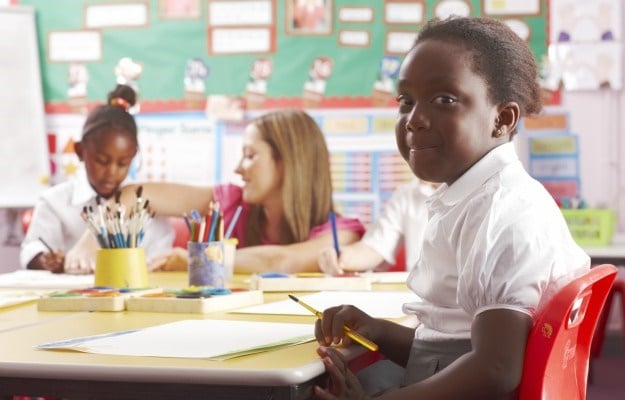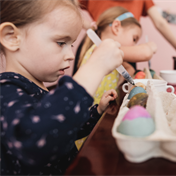
When your Grade R child comes home from school, they can’t stop talking about the friends they made, games they played and the new things they learned that day.
Some experts say this preschool class lays an important foundation for children’s education, but new research shows Grade R doesn’t necessarily give children as big an advantage as previously thought.
So how important is Grade R really? We found out.
What sort of head-start does Grade R give your child?
Stellenbosch University researchers recently compared the academic performance of learners between Grades 1 and 6 who’d completed Grade R and those who hadn’t.
The study focused specifically on maths and the children’s home languages. It was found Grade R had little impact in South Africa and amounted to about 12 days’ extra maths instruction and 50 days’ extra home language instruction – which is relatively little when you take into consideration there are about 200 school days in a year.
Researchers also found that while Grade R gives kids in affluent schools some advantage, it makes no measurable difference to kids in poorer schools. This is because these schools often don’t have enough trained teachers, support networks for learners and support from parents.
Instead of Grade R narrowing the gap between children’s performance in wealthier and poorer schools by giving all children the same foundation when they start school, it seems to widen the gap.
Does this mean Grade R is a waste of time?
Not at all, the experts say. The study only measured the head-start Grade R gives children for their maths and home-language proficiency, but children learn many other valuable lessons in Grade R, says Johannesburg clinical psychologist Dr Cristine Scolari.
“It helps children to get used to the school environment and it makes them feel at ease and used to what’s expected of them.”
That’s why she suggests children go to the same primary school where they completed Grade R.
Dr Scolari says Grade R also benefits children in these ways:
- They learn social skills which they need for interaction in the classroom and to make friends.
- It teaches them to respect authority, to follow teachers’ instructions and to control their emotions.
- It lays a foundation for reading, writing and numeracy.
- It helps to develop children’s hand-eye coordination and physical skills.
How can I help to make my child school-ready?
Here’s Dr Scolari’s advice:
- Let your child help you cook. It requires numeracy skills to measure ingredients.
- Read to your child every day and encourage them to read on their own.
- Invite guests over and encourage interaction with visitors to your home.
- Create opportunities for your child to play with other kids and develop social skills.
- Jigsaw puzzles are an excellent way to teach your child to think logically.
Is my child school-ready?
By the time children go to school they should be able to:
- Go to the bathroom on their own, and dress and feed themselves.
- Know and say their name and age.
- Follow rules.
- Play with friends, take turns and share.
- Have enough emotional intelligence to perform new tasks, cope with changes in their routine and control their emotions.
- Express themselves using basic communication skills.
- Hold a pen or pencil, copy simple designs, write their name and recognise a few letters.
Grade R in South Africa: how does it work?
In South Africa, Grade R is part of the Department of Basic Education’s national curriculum. A child must be at least four years old to be registered for Grade R and must turn at least five on 30 June of his Grade R year.
While Grade R isn’t compulsory, the Department accepted a policy document in 2013 that could make it compulsory. If introduced, compulsory preschool education could lengthen schoolgoing years from 12 to 13 or 14 years, depending on whether your child is in Grade R for one or two years.
The department wants to make Grade R compulsory by 2019.




 Publications
Publications
 Partners
Partners
















